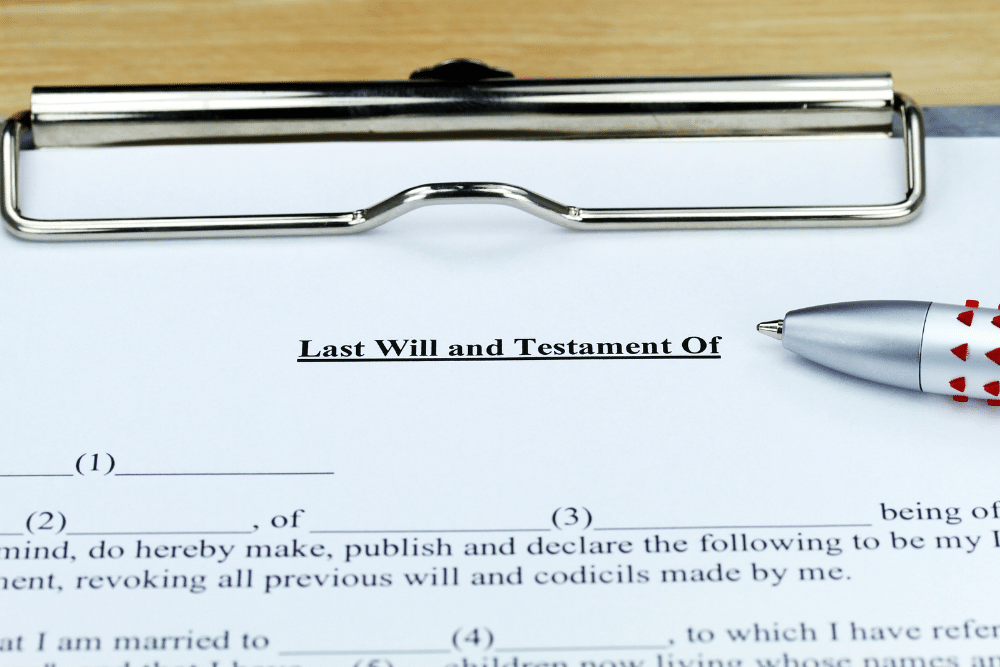
How Many Americans Have a Will? One Survey Says Only About 32%
By: Barry E. Haimo, Esq.
January 28, 2021
A few years ago, we posted a version of this article lamenting the fact that only around 40% of American adults had wills. Well, the numbers today are even more troubling.
Over the last few years, the percentage has only continued to decline, and today it sits around 32%.
Particularly with everything that is going on in the world today, that is utterly astounding. There are so many things that can happen suddenly that the protection of a will is vital for anyone wanting to pass something on to the people they care about.
With all of that in mind, it seemed like a good time to update this post covering both who does and doesn’t have wills as well as the most common reasons people give for waiting — and why they shouldn’t.
Who Does — and Doesn’t — Have a Will
The simple, sad truth is that numbers are down across the board — in a random cross-section of the country, 24% fewer people have a will today than in 2017.
That being said, there are some groups that stand out in those numbers:
People under 55
While it has long been true that the older you are, the more likely you are to have a will, recent years have seen a spike in the number of middle-aged Americans without one.
Just over a quarter of those from 35-54 currently say they have a will, and only 16.4% of those aged 18-34.
Hispanics
From 2019 to 2020, the percentage of Hispanic people who said they didn’t even know how to get a will tripled — from 4 to 12%.
Lower-income individuals
Of those who make under $40,000 a year, only around 25% have a will.
Why People Don’t Set Up Wills
The majority of Americans do not have a will because, let’s be honest, no one wants to think about death. It can be depressing – and even scary – to consider.
But there’s more going on here:
Procrastination
Most people say they know they need to set up a will — they just haven’t gotten around to setting one up.
However, none of us know how old we will be when we die. Procrastination can cause big problems if an unexpected death occurs.
The impact of age
About 80 percent of Americans over the age of 72 have prepared legal documents that direct their assets.
However, as illustrated above, younger demographic groups are far less likely to have these plans settled.
Finances
Another problem is that younger Americans lack the financial assets that older Americans are more likely to have. Some people even mistakenly believe wills are necessary only if a person is financially solvent, but this is false.
Unfortunately, these misguided beliefs often lead to additional emotional stresses for grieving family members if there is no will when the person ultimately does pass.
Why Everyone Needs a Will or Trust
Wills and trusts prevent a court from taking the reins in distributing your assets. If you don’t have end-of-life plans in place, the court has full power to decide how your assets are distributed — regardless of your wishes.
Your will lets you dictate exactly who gets your assets, no matter how much — or how little — you may have. It also tells the court who should become a legal guardian of your minor children if both parents die. This is a crucial issue that parents must consider.
Wills can also include a health care power of attorney, which allows a loved one to make medical decisions on your behalf if you are not capable. Around half of Americans have a power of attorney in place.
Once again, older Americans are far more likely to have one than younger Americans. However, it’s wise to get one before you enter your later years, because tragic accidents can happen at any time.
To protect your family, consult with an estate planning attorney to set up your will as soon as possible. Most attorneys can draw up a straightforward will and power of attorney for an affordable fee.
However, each family’s financial situation and assets are different, and you need to sit down with a qualified attorney to make sure all your assets are distributed according to your wishes.
Originally published on 10/25/2018. Updated on 1/28/21.
Author:
Barry E. Haimo, Esq.
Haimo Law
Strategic Planning With Purpose®
Email: barry@haimolaw.com
YouTube: http://www.youtube.com/user/haimolawtv
YOU ARE NOT OUR CLIENT UNLESS WE EXECUTE A WRITTEN AGREEMENT TO THAT EFFECT. MOREOVER, THE INFORMATION CONTAINED HEREIN IS INTENDED FOR INFORMATIONAL PURPOSES ONLY. EACH SITUATION IS HIGHLY FACT SPECIFIC AND EXCEPTIONS OFTEN EXIST TO GENERAL RULES. DO NOT RELY ON THIS INFORMATION, AS A CONSULTATION TO UNDERSTAND THE FACTS AND THE CLIENT’S NEEDS AND GOALS IS NECESSARY. ULTIMATELY WE MUST BE RETAINED TO PROVIDE LEGAL ADVICE AND REPRESENTATION. THIS INFORMATION IS PROVIDED AS A COURTESY AND, ACCORDINGLY, DOES NOT CONSTITUTE LEGAL ADVICE.